White Cane Safety International Day at the Faculty of Arts
The Faculty of Arts, Ain Shams University, represented by the Center for Electronic Vision and Equal Opportunities, organized a symposium on the occasion of International White Cane Day, which falls on October 15 of each year, under the patronage of Prof. Ghada Farouk, Acting President of Ain Shams University, Prof. Abdel Fattah Saoud, Vice President of the University for Education and Student Affairs, Prof. Hanan Kamel, Dean of the Faculty of Arts, and in the presence of Prof. Salwa Rashad, Dean of the Faculty of Al-Alsun, Prof. Muhammad Ibrahim, Vice Dean of the Faculty of Arts for Education and Student Affairs, Prof. Hatem Rabie, Vice Dean of the Faculty for Postgraduate Studies and Research, under the supervision of Prof. Nadia Hashish, Director of the Electronic Vision Center at the Faculty, and the coordination and implementation of Prof. Reham Assem, Secretary of the Center.
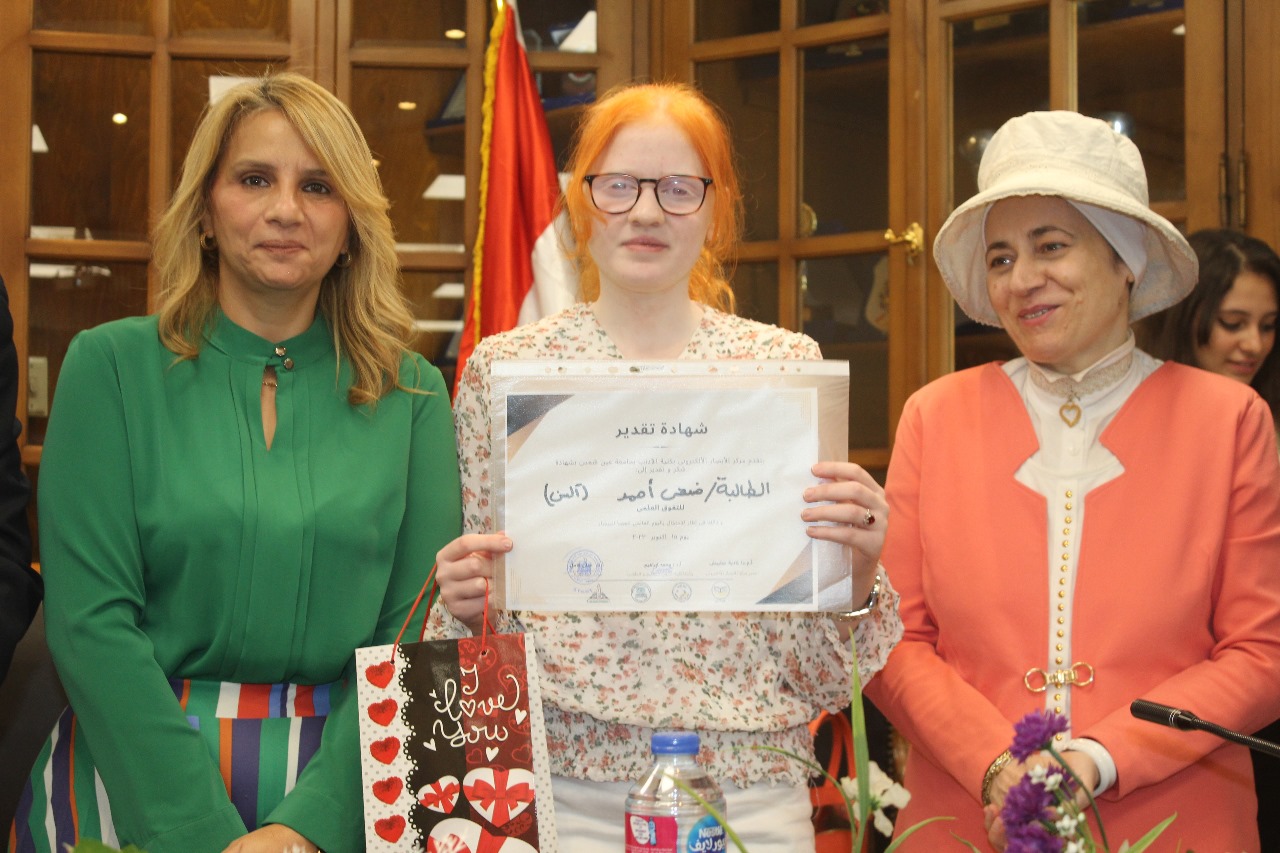 |
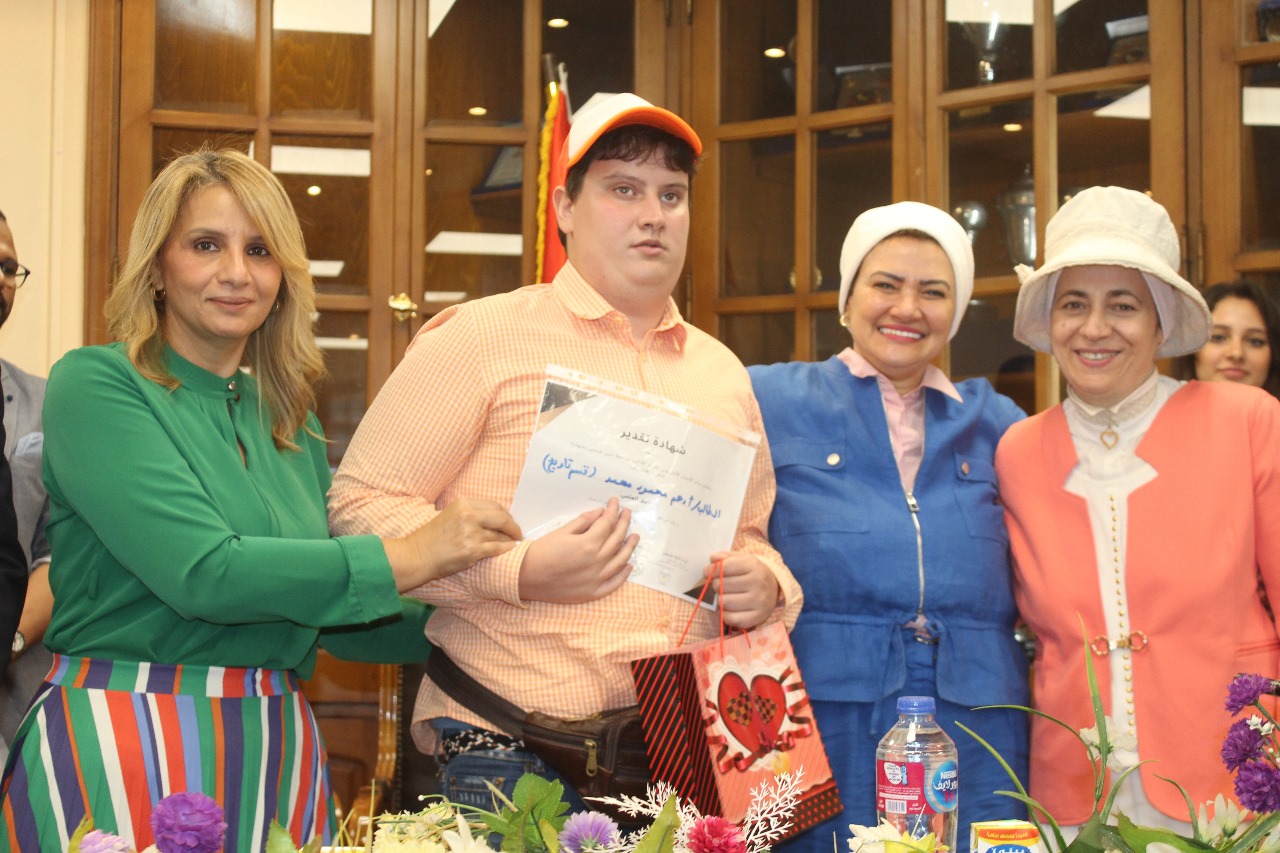 |
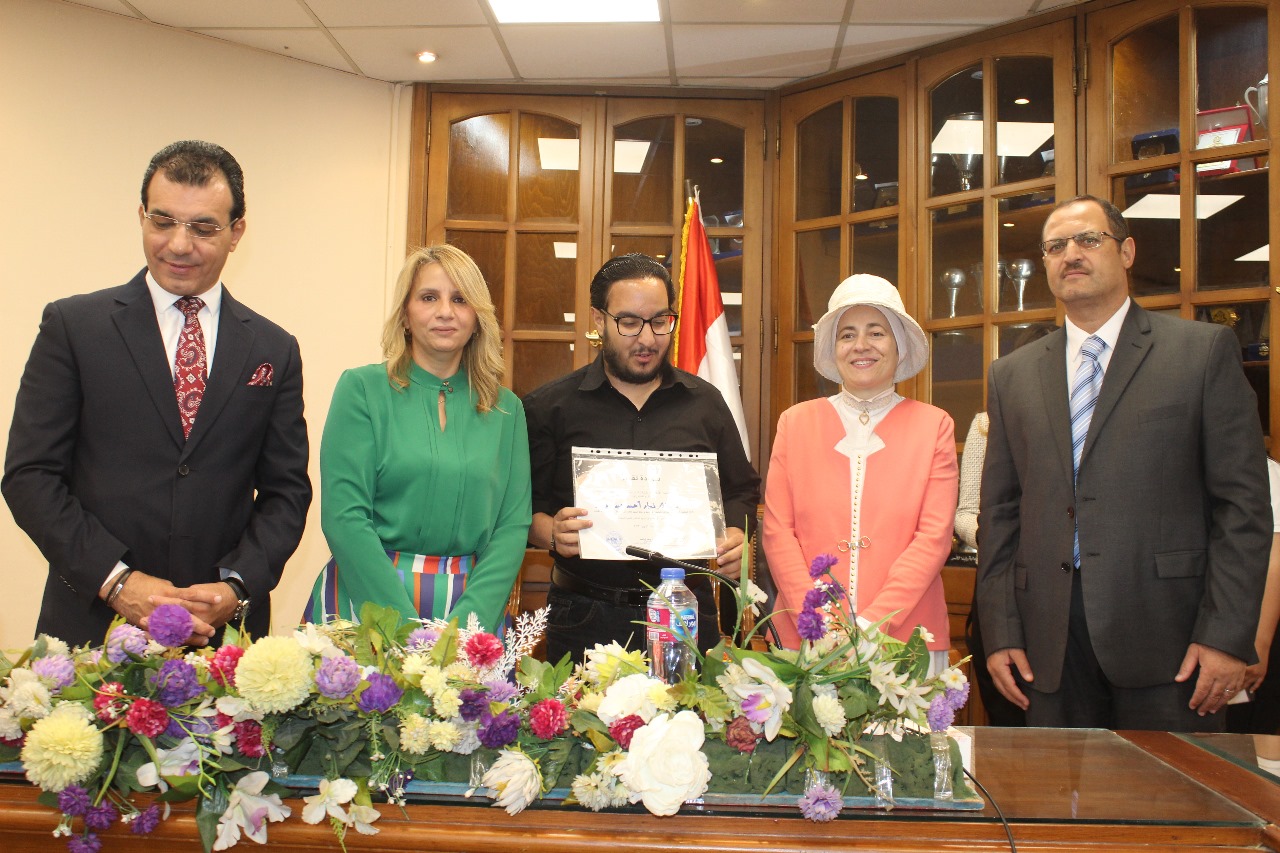 |
||
The day’s activities began with a minute’s silence for the souls of the Palestinian martyrs as a result of the events in the occupied territories, followed by a Qur’anic recitation from the Holy Qur’an from Surah “Al-Tin,” read by the student reciter and vocalist Muhammad Yasser Abdel Fattah. In her opening speech, Prof. Hanan Kamel said that it is a matter of pride and honor to have the center in the heart of the Faculty of Arts, and she extended her thanks and appreciation to Prof. Muhammad Sayed Khalil, the former dean of the faculty, who had the idea of establishing the center and had the greatest hand in supporting the center and developing its capabilities, which necessitated presenting him with a memorial shield as a culmination of his efforts in Serving the students of the center, which was considered the first in the Middle East at the time of its establishment in 2005/2006 until now. She also thanked Prof. Nadia Hashish, Director of the Center, for her care for the students and providing everything she had to serve the students. She also praised the active and effective performance of Mrs. Reham Assem, who is considered the custodial mother of all the center’s students because of the psychological, pre-scientific and academic support she provides to all students. She also thanked all the professors who have headed the center over the years from its inception until now, and who have spared no effort in improving the service provided, and they are: Prof. Mona Abu Tira, Prof. Ahmed Hindi, Prof. Noha Salem, Prof. Manal Muharram, Prof. Muhammad Gaber, and Prof. Nadia Hashish.
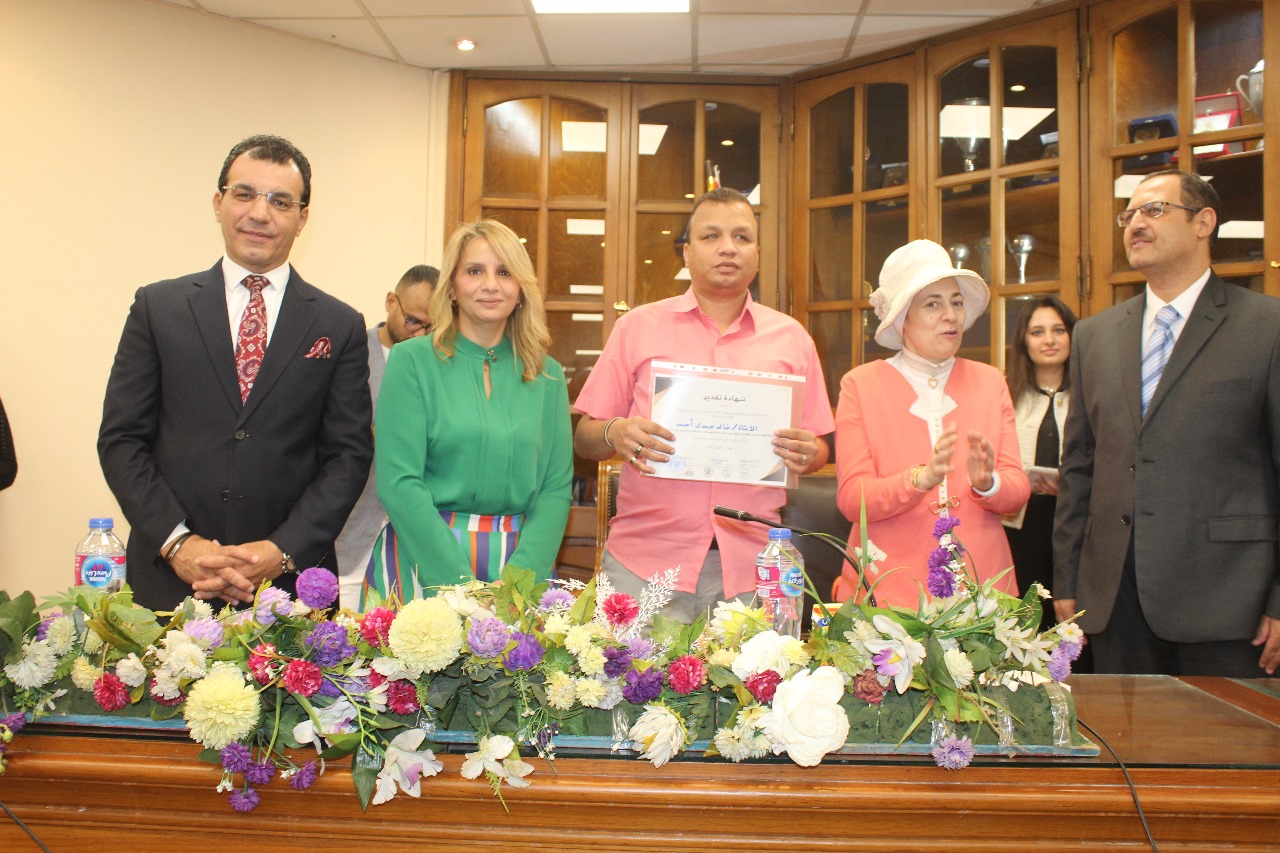 |
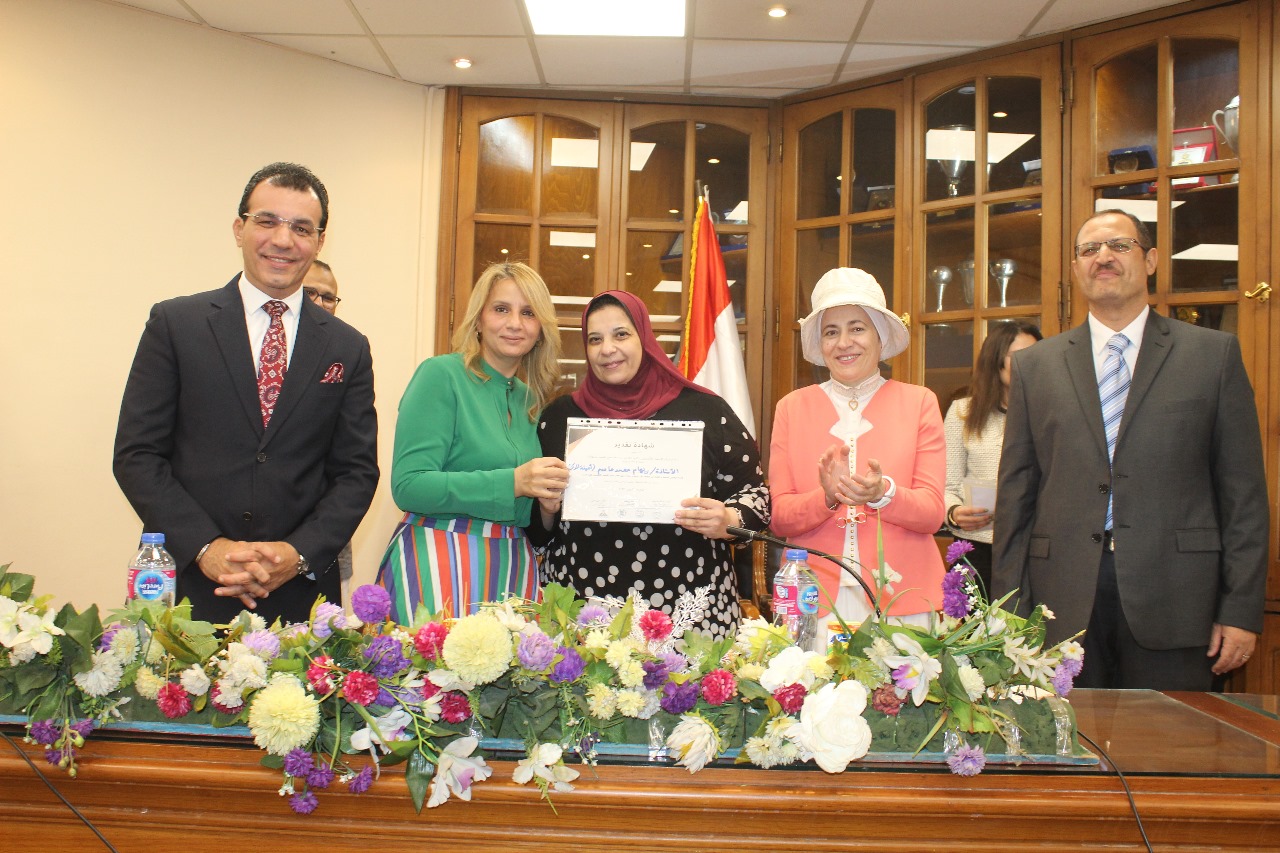 |
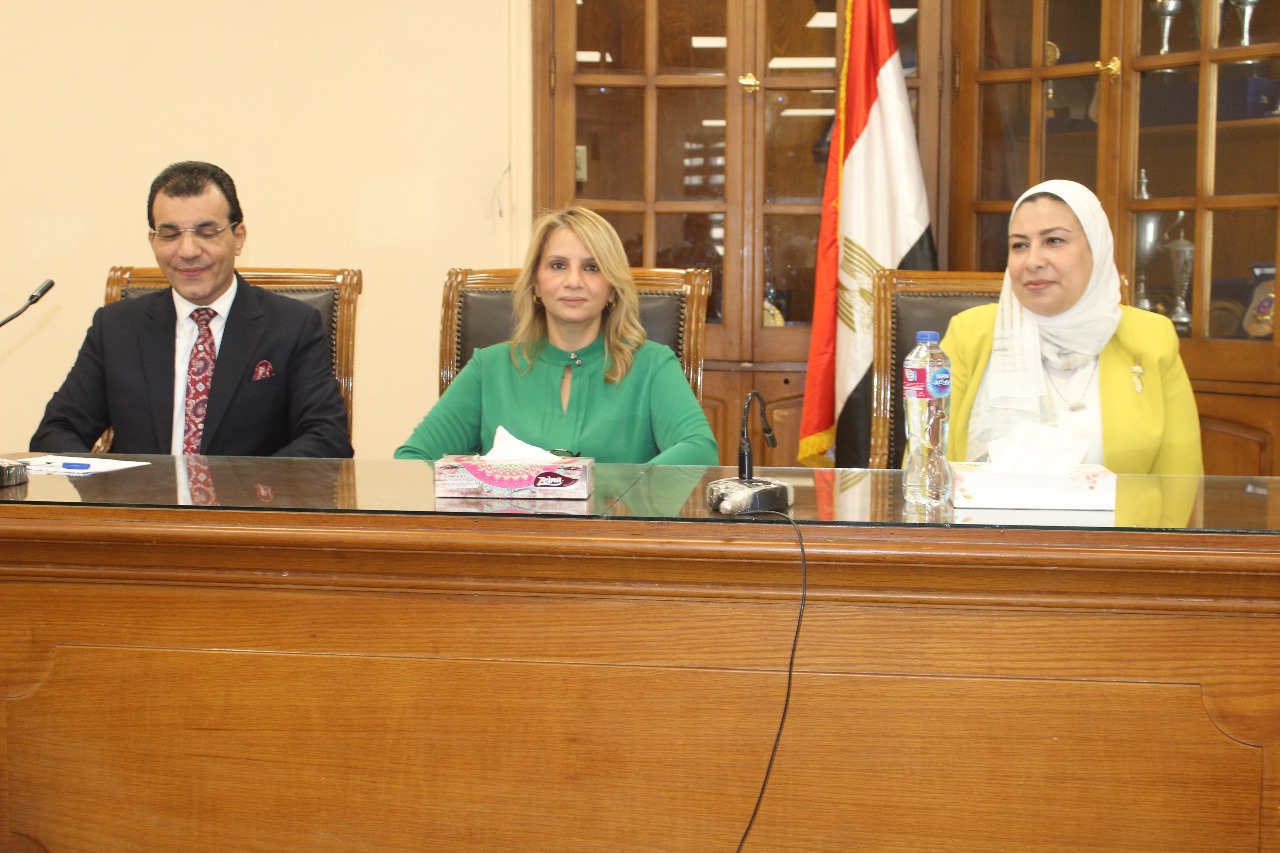 |
||
She expressed that the interest in celebrating this day is a message that confirms the center’s vision and its lofty mission in providing student and training services to its children with special needs in application of the principle of equal opportunities and equality, and also an indication of the importance of concerted efforts of all those concerned with the affairs of people of determination to support and care for them.
She also stressed that the celebration of White Cane Day aims to spread awareness and culture to highlight the white cane as a symbol of visual disability, and that its holder - even if he has a visual disability - possesses skills that enable him to move and orient with the help of that cane, and with this awareness and this culture among individuals, the optimal environment will be created for the blind. Spreading awareness, educating, and guiding community members on how to help people with visual disabilities, and confront and overcome challenges.
At the level of the “Capable in spite of Difference” Unit, Prof. Hanan Kamel thanks Dr. Sally Sami for her continuous support for people of determination, as the college has the largest number of them in the departments of sociology, philosophy, and history. Therefore, it was inevitable for the college to establish this center to care for them socially, artistically, and athletically, develop their capabilities, and improve and increase learning opportunities.
As A. Dr.. Kamel honored the distinguished students and members of the center and presented them with certificates of appreciation and valuable gifts.
For her part, A. Dr.. Salwa Rashad, Dean of the College of Al-Alsun, thanks for the invitation to attend, given the College of Arts’ precedent and distinction in this field and the fruitful cooperation between the two colleges, especially before the establishment of the “Rafiq Al-Darb” Center at the College of Al-Alsun in order to serve blind and visually impaired students.
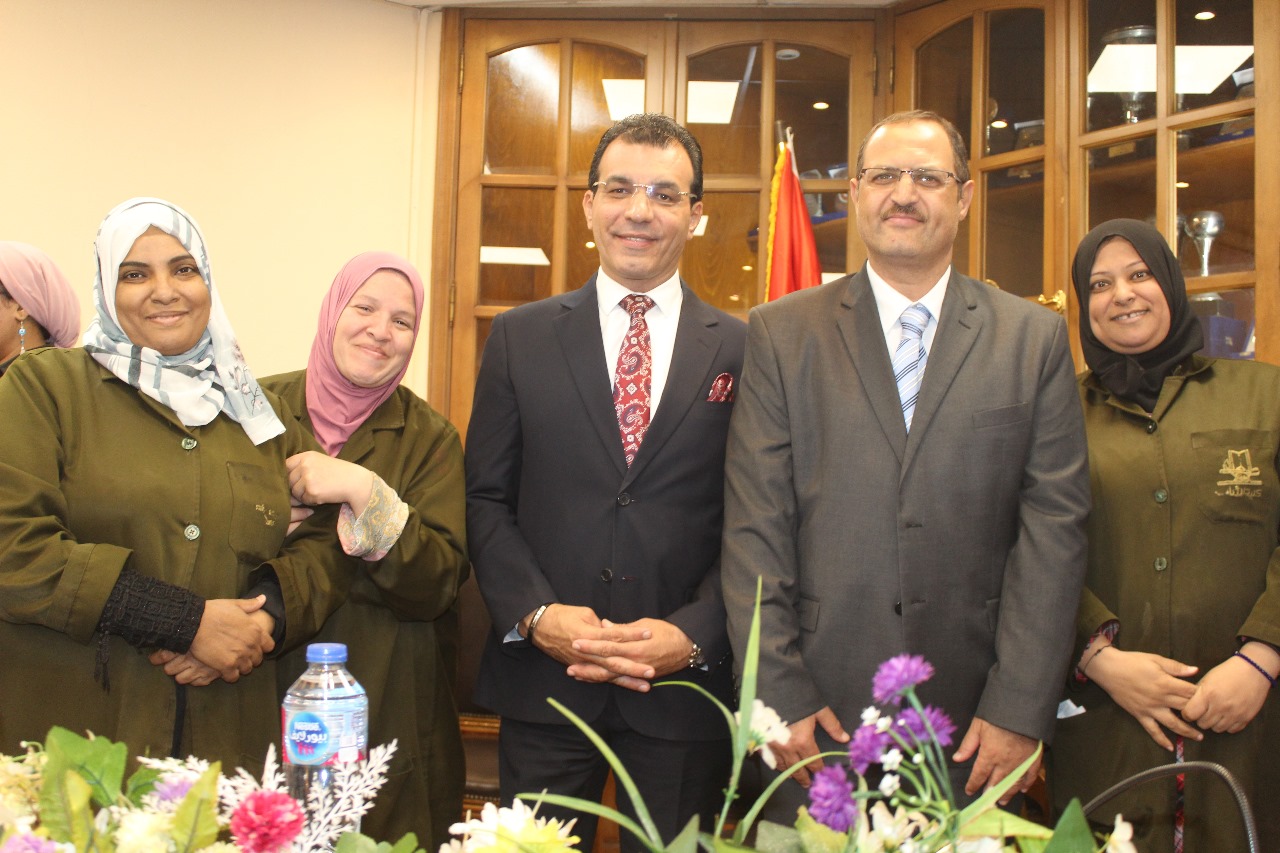 |
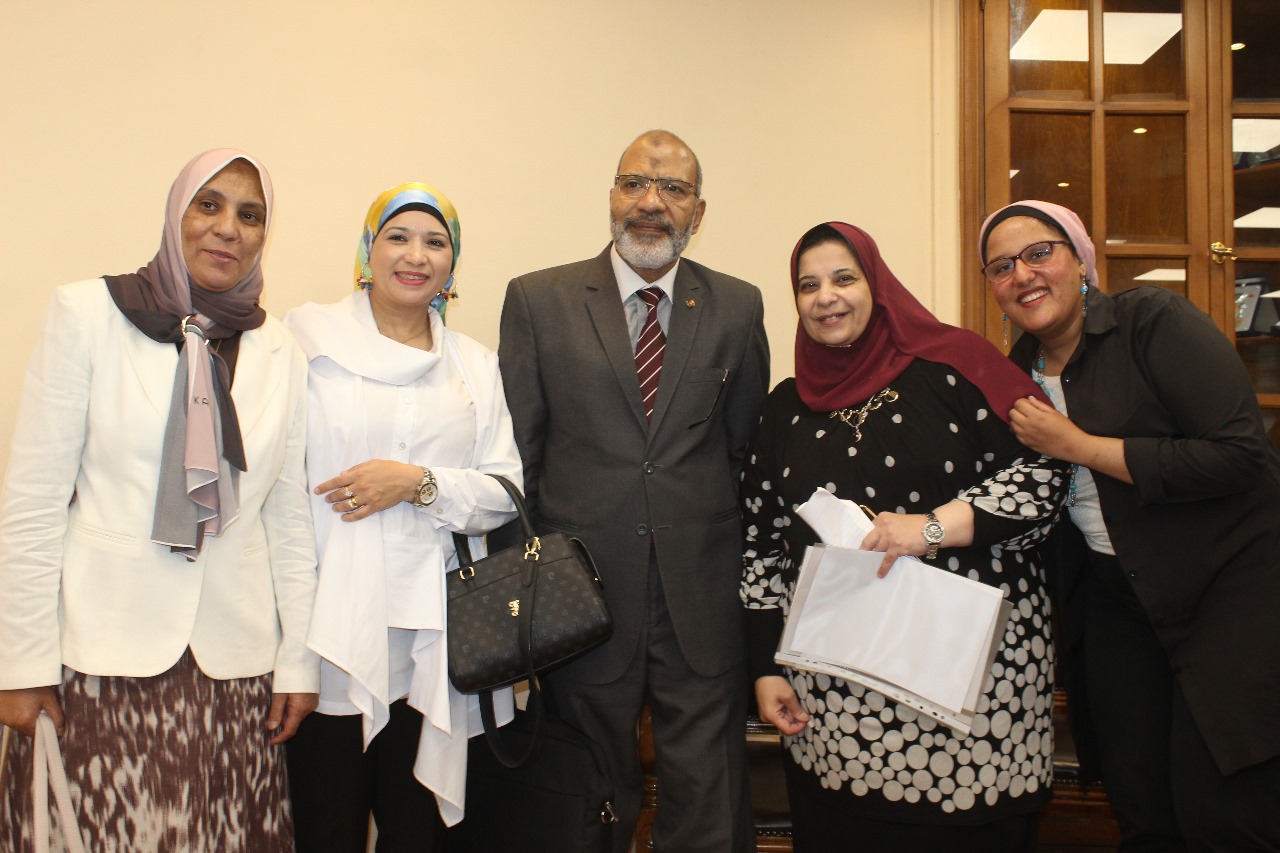 |
|
As for Prof. Muhammad Ibrahim, Vice Dean of the Faculty for Education and Student Affairs, said that in the context of celebrating International White Cane Day, we must know the secret of using this symbol to express a delicate segment of society representing 2.2 billion people in the world. This stick protects its owner from collisions, and draws the attention of society with attention and communication. With its owner, and this group we are most in need of emulating because of the experience, skills, and special talents they have, and the college took the lead in establishing the center, and through my position in the student affairs sector, I extend my thanks to the faculty administration and the dedicated workers at the center who spare no effort to raise it.
In the same context, Prof. Hatem Rabie spoke about the International White Cane Day and the importance of this stick in guiding the blind and visually impaired, and that this is the norm, while the basic principle is that the owner of the stick is the one who drives the stick and leads society towards respecting it, not the one who leads it. He praised the members of the center’s music and singing team, which Some of its members participate in the three musical bands of Ain Shams University.
At the end, Prof. Nadia Hashish, Director of the Center, said that developing the center comes at the top of the concerns of university leaders, based on the general trend in the country to pay attention to people of determination and people with visual disabilities. The center works to develop the capabilities and skills of students and teach them how to write on the computer and take exams on their own without seeking help from anyone.
In turn, and on behalf of the center’s students, the graduate student Maryam Samir spoke about her experience studying at the center, which played a pivotal role in her life and stimulated her certainty of achieving success thanks to those working in it, who supported her psychologically and practically, and how to adapt, be satisfied, and train for self-reliance through continuous training. And learning by trial and error. The student also paid tribute to her mother, who is credited with overcoming all the difficulties she faced.
A photo gallery of the Center's various activities and events was presented on the screens while the attendees were greeted, and the singing group of the Center's students played and sang musical pieces that awakened feelings of patriotism and redemption among all attendees.
.svg)




